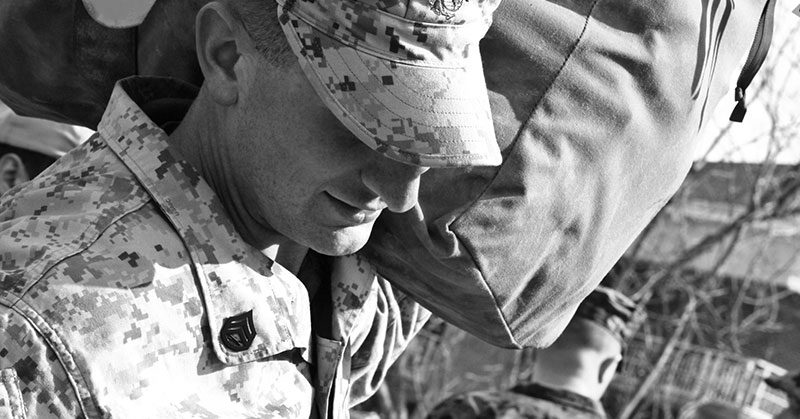My husband has been through a lot of deployments in his 15 years of military service. Most of them were combat, but one was non-combat. For his first three, I was his girlfriend. For the last three, I have been a military spouse with kids. Every deployment was different and had its own unique challenges.
No matter where your spouse is deployed, or how long they are gone, it is always a challenging time. When we compare ourselves to other spouses or fight about who has the hardest deployment, then we all lose. Let’s debunk some common myths about what makes a ‘real’ deployment.
‘Real’ deployments are combat
False. In 2015, the DoD reported that over 150,000 troops were serving in other countries besides Iraq, Afghanistan and Kuwait. Many American troops deploy for the purpose of training in other environments or cooperating with other nations. Not all deployments are combat, but that doesn’t make them less challenging for military families who are separated from their loved ones.
‘Real’ deployments are one year long
False. Different branches deploy for different amounts of time. Army deployments are often 13 months long with two weeks of R&R in the middle. Marine Corps deployments are usually closer to seven months, without any R&R. Air Force and Navy deployments can be anywhere from a few months to over a year, depending on the specific mission. The Coast Guard often deploys for a few months at a time, returns for a few months and then deploys again. None of the deployment cycles are easy for military families.
Shorter deployments are easier than ‘real deployments’
False. Even deployment work-ups where the service member leaves for a few weeks or a month can be a strain on the family. Because, of course, that’s when everyone gets sick and everything goes wrong! Military spouses need to acknowledge that any time away from your loved one is difficult. Instead of competing over whose deployments are harder, let’s support each other through all deployment ups and downs.
Troops are now doing fewer ‘real’ deployments
True, depending what you are comparing. Right after 9/11, many troops were doing back-to-back deployments. Since 2012, the deployment tempo has slowed down. The military is aiming for a dwell time of 1:3. This means that for every year deployed, the service member should experience three years at home. The Army has achieved this average since 2012. The Marine Corps is still far from it. Their current ratio is 1:2. This is not ideal, but it is better than it was 15 years ago.
‘Real’ deployments have limited communication
True. The spouse at home is always limited in how he or she can contact the deployed service member. Even though communication options have improved, one-way communication is still one of the biggest tests of deployment. In some locations, service members have little access to the Internet or phone. In other locations, bases have Wi-Fi and even allow troops to use personal cell phones. This means some deployed members are able to Skype, Facetime, or text their families.
‘Real’ deployments are hard
True. Whether you are a military girlfriend, spouse, or parent, deployment is a challenging time. Even if the service member is not in combat, not in a hostile environment, and has great communication options, there is still an emotional toll from being stressed and alone for many months. Whether you are parenting alone, working on classes, or working your first job, deployment is never easy. You never know what challenges another person is facing. Their deployment could be different from yours in many ways, but I guarantee that it is still one of the hardest things they have been through in their life.





